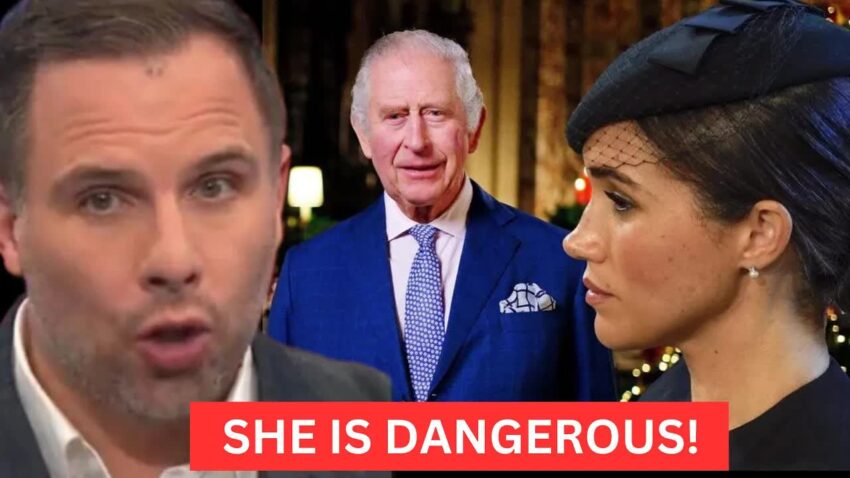Prince Harry and Meghan Markle have once again made headlines, this time for their association with a controversial organization promoting extreme gender views.
The couple’s alignment with the group, which challenges traditional concepts of boyhood and masculinity, has sparked concerns about their agenda beyond the British royal family saga.
The Sussexes, known for their progressive stance on social issues, have thrown their support behind the Global Boyhood Initiative through their Archwell Foundation.
This initiative aims to redefine gender norms and promote gender equality by encouraging positive expressions of masculinity in men and boys, reflecting a deeply entrenched woke ideology.
However, a closer look at the organization reveals the radical nature of its objectives.
The group not only criticizes conventional notions of boyhood but also takes aim at families and schools for perpetuating gender stereotypes and heteronormativity.
It singles out white middle-class heterosexual masculinity as a societal norm that needs to be dismantled.
In a scathing report titled “The State of UK Boys,” the organization challenges traditional gender roles and condemns practices such as gender reveal parties and gender-specific purchases for children.
According to their perspective, even simple acts like expressing joy over the gender of an unborn child on social media contribute to reinforcing harmful gender norms.
Criticism is also directed at phrases like “boys will be boys,” which are viewed as perpetuating toxic masculinity.
The organization advocates for a more fluid and inclusive approach to gender identity, rejecting the idea that children are inherently predisposed to certain behaviors based on their biological s**.
Despite their public support for these radical views, it is worth noting that Harry and Meghan themselves did not adhere to such ideologies when it came to their own children.
In announcing the birth of their daughter Lilibet Diana, Prince Harry inadvertently linked her gender to biological s**, a move deemed problematic by the organization they endorse.
Their past announcement of their son Archie’s birth on social media, marked with traditional gender stereotypes, further highlights the inconsistency between their personal choices and their advocacy for gender neutrality.
The disconnect between their actions and words raises questions about the sincerity of their support for such ideologies.
As the couple continues to navigate the complexities of their public image, their endorsement of radical gender ideology puts them at odds with their own parenting practices.
While they may seek to align themselves with progressive movements, their selective application of these beliefs raises concerns about their true motivations and the impact of their influence.
In a landscape where gender politics and social norms are constantly evolving, Harry and Meghan’s embrace of extreme gender views adds another layer of controversy to their already tumultuous public persona.
The juxtaposition of their personal lives and public advocacy underscores the complexities of navigating fame, family, and societal expectations in the modern age.
Ultimately, the couple’s involvement with the Global Boyhood Initiative reflects a broader trend of high-profile figures endorsing radical social agendas.
As they strive to balance their personal values with their public image, Harry and Meghan find themselves entangled in a web of conflicting ideologies, raising questions about authenticity, accountability, and the power dynamics at play in shaping cultural narratives.
